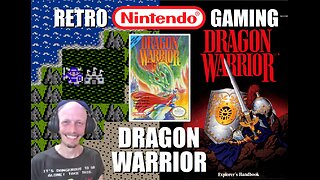Premium Only Content

"Tracking the Life Cycle of Hunga Tonga-Hunga Ha'apai: NASA's Observations"
NASA has been closely monitoring the life cycle of the volcanic island Hunga Tonga-Hunga Ha'apai through satellite observations and scientific research. The life cycle of such volcanic islands can be divided into several stages:
1. Birth (Eruption): The life cycle begins with a volcanic eruption, where molten rock, ash, and gases erupt from the Earth's crust, creating a new landmass. In the case of Hunga Tonga-Hunga Ha'apai, it emerged from the ocean during a volcanic eruption in late December 2014.
2. Initial Formation: After the eruption, the island begins to cool and solidify. During this phase, it is highly unstable, and its shape and size can change rapidly due to erosion, weathering, and continued volcanic activity.
3. Growth and Expansion: In the years following its formation, Hunga Tonga-Hunga Ha'apai experienced significant growth as volcanic eruptions continued to deposit new material, primarily ash and volcanic rocks. This growth is typically characterized by the accumulation of volcanic debris, including tephra, lava flows, and pyroclastic flows.
4. Erosion and Coastal Evolution: Over time, the island faces the forces of erosion from wind, waves, and ocean currents. This erosion can reshape the island's coastline and alter its topography. The island may also experience landslides and collapses, which can further change its size and shape.
5. Vegetation and Colonization: As the island matures, it may become suitable for vegetation to take root. Seeds and plant life can be transported to the island by wind, water, or visiting birds, leading to the colonization of the island by plant species.
6. Stability or Demise: Depending on various factors such as continued volcanic activity, erosion rates, and geological processes, the island may either stabilize or eventually erode back into the ocean. Some volcanic islands remain relatively stable for an extended period, while others may have shorter lifespans.
-
 17:54
17:54
Nate The Lawyer
5 hours ago $1.88 earnedChicago Mayor’s $600M Migrant Spending Leaves City $1.1B Budget CRISIS.
13.1K23 -
 LIVE
LIVE
GritsGG
6 hours agoRumble Customs! 3515 Ws! 🫡!
201 watching -
 LIVE
LIVE
cosmicvandenim
15 hours agoVAN DENIM x RALLIED & GRITS | Team 6: Denim Grit | Warzonepalooza Tournament
322 watching -
 LIVE
LIVE
GamerGril
2 hours ago💕 The Evil Within 2 💕 | First Time Playthrough | Backseat Gaming Encouraged
59 watching -
 1:03:57
1:03:57
Jeff Ahern
3 hours ago $2.80 earnedThe Saturday show with Jeff Ahern
14.7K3 -
 LIVE
LIVE
ZWOGs
2 hours ago🔴LIVE IN 1440p! - Sgt Wilky's WARZONEPALOOZA - Warzone Resurgence Tournament - Come Hang Out!
60 watching -
 LIVE
LIVE
Flexible Games
5 hours agoMasked Stranger in Grounded 2!
16 watching -
 LIVE
LIVE
DynastyXL
9 hours ago🔴LIVE: Fortnite The Comeback Stream Starts Here🎃
56 watching -
 3:22:32
3:22:32
BrightGaming
4 hours agoDragon Warrior 1 (NES): Defeat the DragonLord & Save the Kingdom as Erdrick's Heir with BrightGaming
17.3K2 -
 19:15
19:15
Stephen Gardner
21 hours ago🟢YES! Trump did it! + Elon Musk DROPS BOMBSHELL on Democrat Party!
128K276